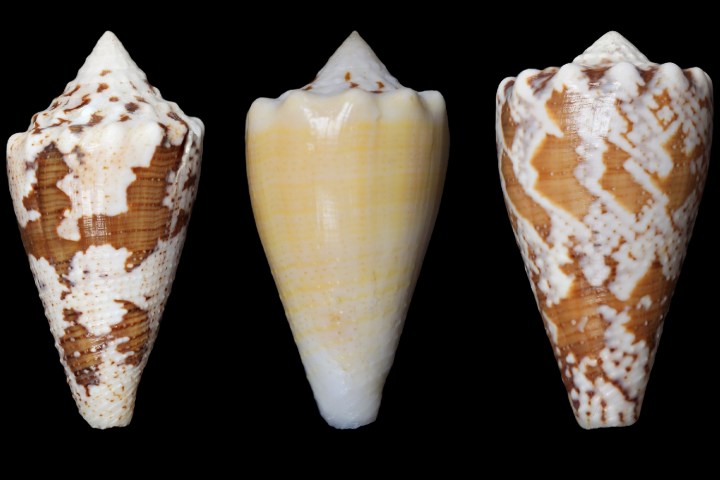
That’s possibly where you should have been looking, however, based on a new article published in the journal Proceedings of the National Academy of Sciences.
The paper describes a compound which blocks pain, discovered by scientists at the University of Utah, with support from researchers at the University of Florence, Kirksville College of Osteopathic Medicine, A. T. Still University, University of Mississippi Medical Center, and biotech company Kineta.
Not only was the impact of the compound long-lasting, with its effects continuing for 72 hours after being injected into rodents, but it was also free of highly-addictive opioids, which kill 91 Americans every single day from drug overdoses.
The compound is derived from petide, a chemical component found in the venom of the particular snail in question, which uses it both to help immobilize prey and also as a defense mechanism.
“There are hundreds of species of snail, which hunt a wide variety of prey, such as fish, worms, and other snails,” Dr. J. Michael McIntosh, a professor of psychiatry and biology at the University of Utah, told Digital Trends. “They each have a unique cocktail of 200 or so components in their venom. Once we find a particular compound of interest, we can then begin surveying the other species of snails to see if we can find improved versions of that compound. As we did our tests, we found petide in the venom of the conus regis snail.”
The original petide worked well in rodent tests, although the team made further synthetic modifications to the compound based on differences in the receptors of humans. Now, they’re working to develop the compounds for clinical trials in humans. “It’s in pre-clinical stages at the moment,” McIntosh said. “We hope to advance that over the next year or two, so as to do drug testing in humans.”


